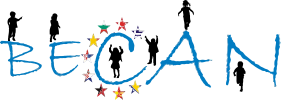Description of work Training on Methodology
3. “Train-the-Trainers” Workshop: The Coordinator, along with the Scientific Supervisor, will undertake the training of partner countries’ representatives:
a. On the administration of the ICAST questionnaires, the ethical issues that have to be addressed and the overall methodology of the epidemiological studies, including coding and handling of the data. The Workshop is going to be conducted after the Focus Groups’ implementation, in order to take into account all possible issues and barriers that would have been recognized during them. If a necessity for major modifications in the training is revealed after the Pilot studies implementation, a second long workshop is going to be organized; if not, a brief update of the training is going to be held. (WP3)
b. On the use of the Protocol for Extracting CAN information and the process of recording information on reported/detected cases of CAN from the child welfare services’ archives and/or databases (WP4)
4. Researchers’ Training Workshop: As regards to the tasks of WP3, the research team of each partner country will be trained twice. The first training will take place prior to the implementation of the Pilot studies, while the second one prior to the implementation of the main surveys. The length of the second training will be the same as the second “train-the-trainers” workshop.
Similarly, as regards to the tasks of the WP4, the training will held prior to the implementation of the extraction of information on reported/detected cases of CAN. All of these trainings should be undertaken by the trained trainers of each partner country.
|
|||||||||||||||||||||||||||||||||||||||||||||||||||||||||||||||||||||||||||||||||||||||||||||||||||||||||||||||||
 |
Balkan Epidemiological Study on Child Abuse & Neglect |
|
|
User loginWho's onlineThere are currently 0 users and 2 guests online.
|
|
Institute of Child Health |


